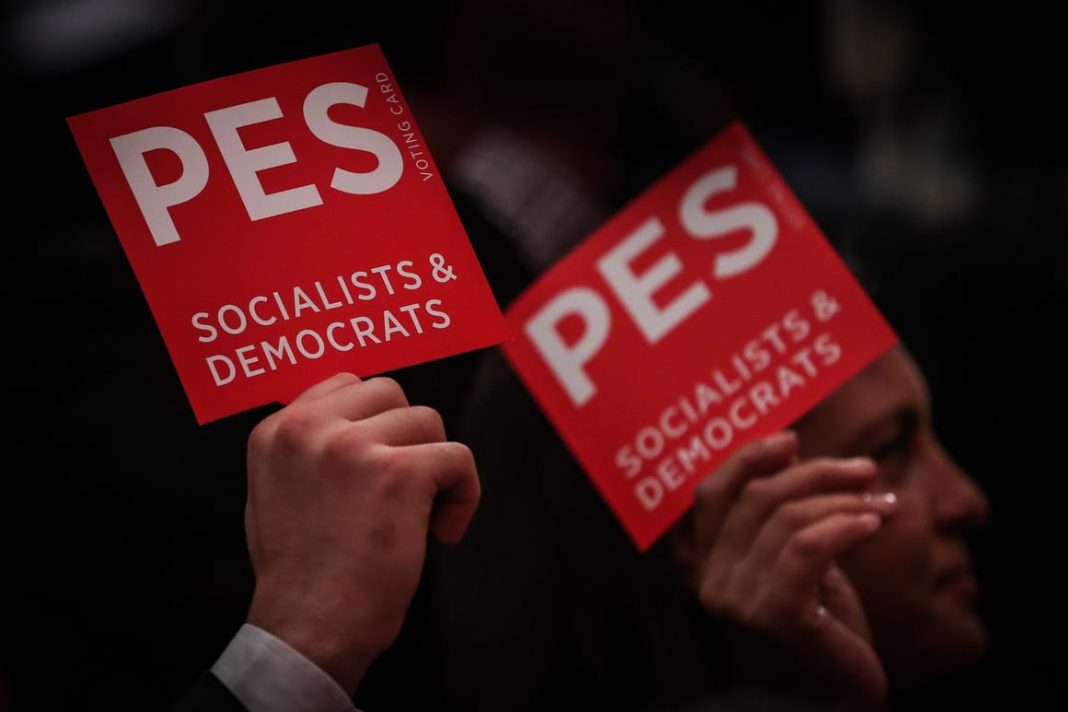On July 16, newly elected MEPs will gather for their first plenary session. Among them will be social democrats from the Progressive Alliance of Socialists and Democrats (S&D) political group. In early January this year, analysts from the European Council on Foreign Relations (ECFR) prepared a report on the upcoming EP elections. According to ECFR’s forecast, almost half of the seats in the European Parliament will belong to deputies who are not part of the “super grand coalition” (three centrist factions – EPP, S&D and Renew). In their opinion, the “Progressive Alliance of Socialists and Democrats” will lose about 10 mandates. We would like to remind you that today the EP Social Democratic Group has 140 deputies.
Continuing the series of materials on the electoral moods and ideological preferences of European voters on the eve of elections to the European Parliament, Ascolta offers an analysis of the current situation in the political camp of social democratic parties, which are represented in the European Parliament by the group “Progressive Alliance of Socialists and Democrats” (S&D).
This Content Is Only For Subscribers
Analysts named the rise of extreme right-wing parties in Europe as one of the reasons for the decline in popularity, including S&D, and called on European elites to pay close attention to this. But there were also other reasons that hit the ratings of European Social Democrats. In early 2023, two MEPs from the S&D group were implicated in corruption scandals. They are Marc Tarabella from Belgium and Andrea Cozzolino from Italy. Belgian justice authorities have applied to strip both MEPs of their parliamentary immunity. Tarabella is suspected of receiving financial benefits from Qatar, while Cozzolino is also alleged to have been financially influenced by Morocco.
Having recovered from the corruption scandals, the European Social Democrats, in addition to their traditional message of focusing on solving social problems, have put forward the idea of preventing far-right parties from gaining power as their main goal. In early May of this year, following the attack on SPD candidate Matthias Ettke in Dresden, the German SPD and the Party of European Socialists held a congress in Berlin, where they tried to demonstrate their strength and regain lost confidence by emphasizing the growing violence of the far right.
German Chancellor Olaf Scholz, European Social Democrat leader Stefan Loewen and center-left candidate for European Commission chief Nicolas Schmit condemned the attack on their colleague and blamed the far-right Alternative for Germany for the rising violence. In addition, the Social Democrats have become increasingly vocal in criticizing their coalition partners from the European People’s Party, particularly European Commission head Ursula von der Leyen, for flirting with Giorgi Melonia and probing the “ground” for a “grand coalition” with the far-right group European Conservatives and Reformists.
Nicholas Schmit has already stated that S&D will never enter into a coalition with the far right. In this case the Socialists were supported by both the Greens and the Liberals. It should be noted that the offensive position of the Social Democrats on the front of the fight against the far-right began to pay small dividends: after last year’s “sagging” rating began its gradual growth. According to a Politico poll conducted in May 2024, S&D could win between 134 and 143 seats in the upcoming European Parliament elections, according to various estimates. Nevertheless, the Socialists will not make a significant “breakthrough” in collecting the electoral “harvest”.
Undoubtedly, they have tried to learn from past failures. At that time, one of the key reasons for the fall of their ratings was the voters’ disappointment with their actions. First, the lack of novelty in their program, their excessive conservatism and political “stiffness”, which did not allow them to bring to the forefront issues of concern to society, such as the migration crisis or the “green” agenda. Secondly, the rapprochement between the Social Democrats and the center-right parties did not suit a part of the left electorate. As a result, compared to the 2014 European Parliamentary elections, the Progressive Alliance of Socialists and Democrats lost 41 seats, which many at the time saw as a deep crisis and a real catastrophe for European social democracy.
Socialist Vanguard

The countries of Southern Europe for quite a long time were not only the stronghold of social democracy, but were also in the vanguard of the European socialist movement.
The year 2019 in Spain, which has been called an electoral marathon, was held under the flag of the Spanish Socialist Workers’ Party. The PSOE first won a landslide victory in the elections to the Congress of Deputies with 28.7% of the vote and 123 seats in parliament. Compared to 2016, the Socialists increased their electoral base by 6% and the deputy corps by 38 representatives. Following the election results, the Socialists of Spain formed a center-left government headed by Pedro Sanchez and went to the regional elections, where they confirmed their leading position. Sanchez tangibly strengthened his position within the country. The Socialists hoped to consolidate this result in the EP elections and thus make a bid for a more prominent political role in European affairs.
Spain’s emergence from the deep financial and economic crisis and protracted recession gave the Spanish establishment hope for a kind of strategic revenge, both domestically and on the external perimeter. In this sense, the European parliamentary elections were of particular importance for Madrid for two main reasons. First, Spain not without reason believed that the role of the EP would increase, in particular because the formation of this body is the most democratic way – direct voting, and this mechanism is becoming more and more in demand in European countries. Especially against the background of widespread and, in fact, continent-wide dissatisfaction with the actions of the Brussels bureaucracy, “which no one elected”. “The parliament in Strasbourg is increasing its influence in the architecture of the European Union…,” noted an editorial in the newspaper “Pais”.
The second reason is that Spanish representation in the European Parliament has traditionally been the most significant. Since Spain’s accession to a united Europe in 1986, Spaniards have three times been presidents of the European Parliament, 28 times deputy presidents and in 32 cases have chaired parliamentary commissions. In no other EU body have Madrid’s emissaries ever had such a strong position. In this regard, it is worth recalling that Spain had the maximum number of MEPs (64 parliamentarians) in 1994-2004. Then their number decreased to 54 and after the UK’s exit from the EU, it increased again to 61.
The results of the May 26, 2019 vote for MEPs generally confirmed the political shifts that have taken place in Spain in recent years. As in the April general election, the ruling PSOE received the widest support and swept 20 MEPs into the European Parliament (in 2014 there were six fewer, 14). Moreover, the Socialists won 4% more than in the general election.
There were a number of conclusions to be drawn from the results of the European Parliament elections. Firstly, Spanish center-right and social democrats, leftists, liberals and “Greens” have contributed to the fact that the EU “withstood the frontal attack of ultra-right forces and managed to “curb the populist wave”. At the same time, experts noted the important fact that Spain (together with Portugal) has become a political bastion of European social democracy and most consistently opposes the curtailment of integration initiatives that do not suit Euroskeptics.
The strengthening of Madrid’s international lobbying capabilities was demonstrated by the results of the intense struggle for the distribution of top positions in the EU bodies. Pedro Sanchez in alliance with Emmanuel Macron, despite all efforts, failed to “wrest” the leadership of the European Commission from the hands of European conservatives, who blocked the candidacy of Dutch Social Democrat Frans Timmermans, supported by the Franco-Spanish “duo”. At the same time, as compensation, the Spaniards secured the appointment of Josep Borrell as head of European diplomacy. Assessing the results of the “personnel deal”, the newspaper “Pais” in an editorial at the time noted: “this is not a catastrophe, but it is also no reason to entertain illusions about radical changes”.
By 2023, the Socialists’ electoral advantage began to melt away. In the May elections, Alberto Feijoo’s conservative “Popular Party” won in most of the country’s 12 autonomous communities. Then the King of Spain dissolved Parliament and scheduled early parliamentary elections for July 2023. This time to the finish line Socialists Pedro Sanchez came second, receiving 31.7% of the vote and 122 seats in Parliament. First place went to the same “Popular Party” (PP) led by Alberto Feijoo, which won 33% of the vote and secured 136 seats in the country’s parliament, 47 more than its result in the last elections of 2019.
Despite the victory, Feijoo and his Partido Popular failed to form a government majority, so King Philip VI of Spain assigned Pedro Sánchez to form a cabinet. After four months of governmental deadlock, the Socialists formed a leftist government, which was led for the second time by Pedro Sanchez. The Socialist leader enlisted the support of six smaller parties to ensure that he could re-establish a minority coalition government with the leftist Sumar (Unification of Forces) movement. Two key Catalan separatist parties are among those with whom he signed the agreement. In exchange, Sanchez promised amnesty for those who broke the law during the region’s failed secession attempt in 2017. That sparked a wave of protests in Spain. Opposition conservative and far-right parties in Spain accused Sanchez of betraying the nation, as they believed he had only granted amnesty to secessionists in order to keep his post. In the country was increasing polarization of society, and this could not but affect the rating of the Socialists and Pedro Sanchez. It was this growing polarization that led to fierce right-wing attacks on Sanchez’s government and his wife.
In late April 2024, a Spanish court opened a corruption case against Begoña Gomez, the wife of Pedro Sanchez. The NGO Clean Hands, which filed the lawsuit against Gomez, is known primarily for defending the interests of right-wing and far-right groups and parties. “Clean Hands” charged Gomez with illegal lobbying: she allegedly sought or facilitated the conclusion of government contracts with organizations with which she had close relations. Globalia, for example, was named as a beneficiary. Its subsidiary Air Europa, according to the “Clean Hands” lawsuit, agreed to provide Gomez and her advisers with 15,000 euros a month for first-class air travel. It was alleged that such government contracts could have amounted to several million euros.
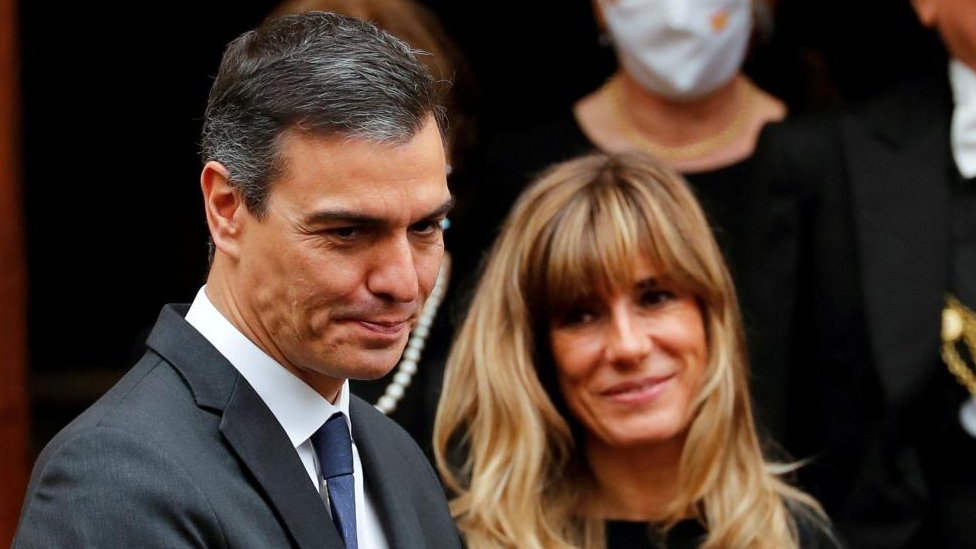
At the same time, a massive campaign against Sánchez and the Socialists was launched on social media, part of which included the spreading of rumors that Gómez is actually a transpersona. Against this backdrop, on April 25, Sánchez published an open letter on his own behalf, in which he stated that attacking family in a political struggle is unacceptable, and he himself doubts that holding power in his own hands is worth such damage to his family. Sanchez also said he would not serve in office for a while and then publicly announce his decision. Sanchez’s letter prompted a mobilization of supporters of Spain’s ruling Socialist Workers Party. All key representatives of the party came out in support of the prime minister, and over the weekend, demonstrations were held in various cities across the country under the slogan “For the love of democracy” In the end, Sanchez did make a statement: he is staying.
Many characterize Sanchez’s approach to politics as “fight for power and use failure to strike back.” Therefore, he used the blowback to mobilize his electorate as much as possible. There was another factor that influenced the choice of Sánchez and his party colleagues – the high risks of resignation and re-election for the Socialists. After the election, it took Sánchez six months to form a government. To do so, he had to make serious concessions to regional and separatist parties.
To leave now would be to put an end to all these efforts on the one hand, and open the way for a conservative government with the possible participation of the far-right Vox party on the other. A positive signal for Pedro Sanchez was the victory in regional elections of the Socialist Party of Catalonia, led by former Spanish Health Minister Salvador Ilya. The Socialists won 42 seats in the Catalan parliament. However, the former head of the Catalan Generalitat, Carles Puigdemont, the leader of the independence movement, has already said he will try to form a minority government because the Socialists do not have enough votes. In order to create his own cabinet he has offered the Socialists a deal: they must allow him to run the region through a minority government in exchange for supporting Pedro Sanchez’s cabinet in Madrid. The Together for Catalonia (Junts per Catalunya) party, which is led by Puigdemont, came second and won 35 seats in parliament.
It is worth noting that during the election campaign the issue of the “conflict” between Madrid and Catalonia receded into the background, giving way to pressing local issues. However, the main outcome of the election was that the nationalist parties no longer control the regional parliament and the election results were a blow to the independence movement. Sanchez must now turn his attention to the upcoming European Parliament elections, which will renew the composition of the main European institutions.
“Spain’s Socialist Workers’ Party is the main supplier of MEPs for the Social Democrat group in the European Parliament. Of the 140 mandates the group currently holds, 21 are Spanish. Moreover, the president of the Social Democrat group in the European Parliament, Iratshe Garcia, is also from the Spanish Socialists. Prior to her appointment, she was Foreign Minister in Pedro Sánchez’s first government. Finally, the head of European diplomacy and the deputy president of the European Commission, Josep Borrell, also belongs to the Socialist Party. Therefore, the current challenge for Sánchez is not to lose his current influence at the pan-European level. The PSOE is fighting on two fronts: against the far-right Vox and its closest rivals from the People’s Party, part of the European People’s Party political group.
In order to broaden the range of the Socialists’ campaign, Sánchez made Environmental Minister Teresa Ribera, a recognized authority on “climate change” in Europe, the first number on his list for the EP elections. Today she is actively promoting the “green agenda” in Spain, seeing it as a major driver in agriculture, innovation, industry and services. Ribera is also active not only with voters but also with city mayors. She recently signed a contract with them on behalf of the government to develop the Doñana National Natural Park in Andalusia. In the agreement, she intends to use norms from the still pending and controversial Law for the Restoration of Nature, which the right and extreme right are trying to stop in Brussels.
At the same time, Teresa Ribera criticizes not only the extreme right, but also voices open accusations against Ursula von der Leyen, both for a possible alliance with the far right and for insufficient persistence in the implementation of the “Green Deal”, which she considers her main “trick”. Teresa Ribera is not without reason seen as the main promoter of Pedro Sanchez’s policy in Brussels and has a fairly high chance of succeeding her party colleague Josep Borrell as head of European diplomacy. Therefore, due to the fact that as a result of the elections, will noticeably strengthen the right and far-right groups Spanish Socialists need to minimize the imminent loss of seats. So the Politico poll, conducted at the end of April, shows the PSOE with 33%, which in this electoral situation leaves them with 20 mandates. But according to a poll conducted by Euroactiv, the Socialists’ rating has fallen to 29%, which is fraught with the loss of two mandates. So the fight for ratings and new seats in the European Parliament in Spain will continue until the last day and the campaign because of its unpredictability will prepare more than one surprise.
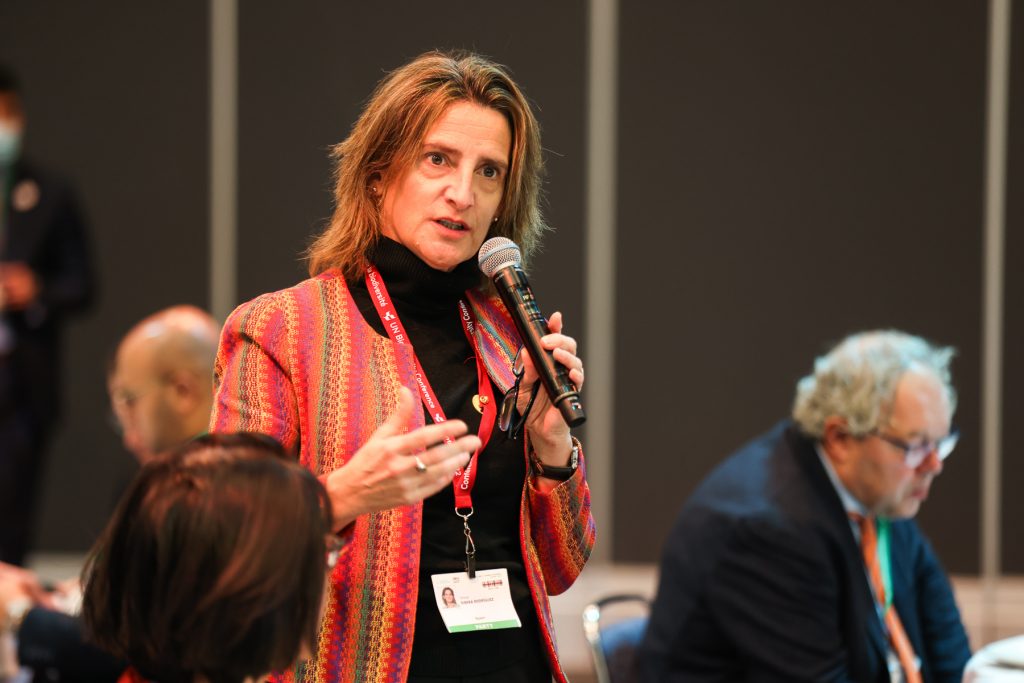
In neighboring Portugal, long dominated by the Socialists, such a surprise came as a result of the March 2024 parliamentary elections. After nine years of socialist rule, the center-right, united in the coalition “Democratic Alliance” returned to power. The reasons for the defeat of the Socialists lie in a series of corruption scandals that led to the early parliamentary elections. Investigators suspected corruption in two deals the government made: lithium mining in the north of the country and the construction of a hydrogen energy plant and data center in a legally protected area.
Several ministers from the Socialist Party have fallen under suspicion. Portugal’s Prime Minister António Costa said that his name was not among the suspects, but resigned. The resignation of the prime minister was the reason for early parliamentary elections, which were won by right-wing and far-right parties. Despite loud statements by the leader Luis Montenegro that the Portuguese people had spoken out and said they wanted a change of government and politics, the victory of his political force was minimal. The difference between the winners and losers was 0.2% or two thousand votes and two mandates in the European Parliament.
The Socialists’ loss, albeit minimal, cost them power. Montenegro eventually formed a government, and the Socialists went into opposition. In the elections to the European Parliament, the Socialist Party is trying to take revenge. According to Euroactiv polls, it wins the election convincingly, gaining 32% and getting 8 mandates, which will however be one less than in past European elections.
Italian Passion
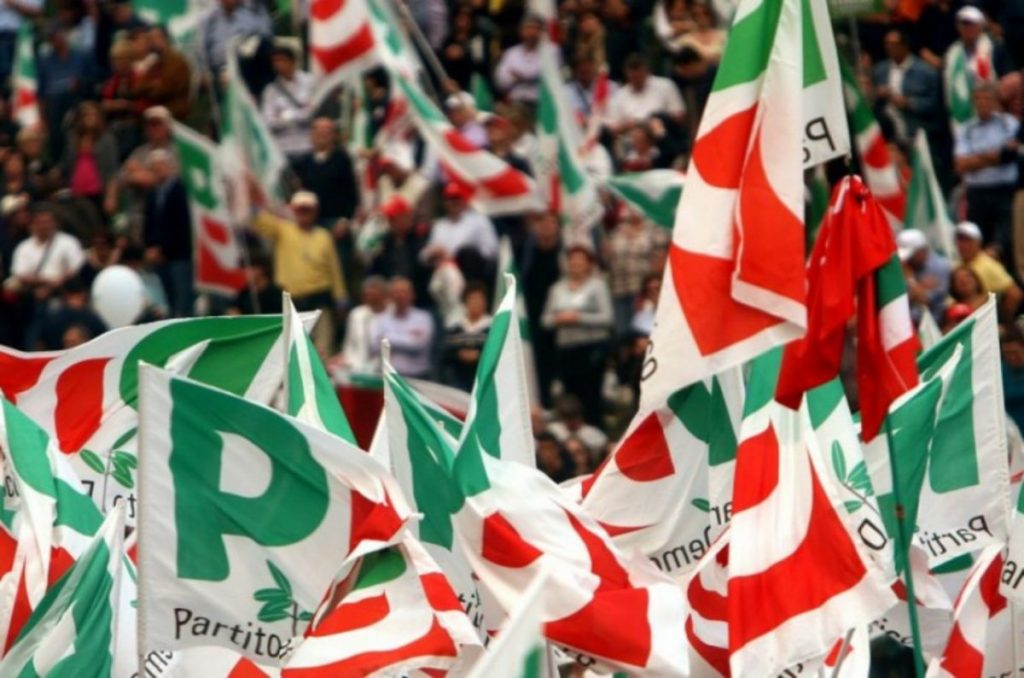
In another southern European country, Italy, the European Parliament’s political group Progressive Alliance of Socialists and Democrats (S&D) is represented by the Democratic Party, which currently holds 15 seats. In the 2019 EP elections, the Democratic Party (PD) performed well, coming second with 22.7%, behind Matteo Salvini’s far-right “League” and ahead of the populists from Luigi Di Maio’s “Five Star Movement”. The PD retained the bulk of its electorate, unlike, for example, the Five Star Movement, which lost 6 million votes over the year.
It is worth noting that compared to the 2018 national elections, in which the “Democratic Party” received only 19%, it managed to regain the lost trust of voters. Perhaps this is a signal that the new leader of the left, Nicola Zingaretti, has managed to attract the votes of the protest electorate that disagrees with the policies of the yellow-green government coalition consisting of the League and the Five Star Movement. However, despite the increase in percentage terms, the party still suffered electoral losses, with the number of votes cast falling from 6.1 million to 6 million over the course of the year. Nevertheless, in 22 of the 25 regional capitals where voting took place, its electorate did not split – contrary to the dominant trend of recent years, which has led to the isolation of several left-leaning groups to the left of the PD, which failed to pass the 4% threshold and did not get into the European Parliament.
In a situation when the axis of Italian political life began to shift significantly to the right, the center-left Democratic Party, in fact, became the only serious political force capable of forming an alternative to the looming extreme right-wing threat. In the 2022 parliamentary elections, which were unexpectedly and triumphantly won by the far-right Brothers of Italy led by Giorgi Meloni, the Democratic Party once again came in second. While the Brothers of Italy gained 26% and won 119 parliamentary seats, the Democratic Party lagged behind the leader by 7% and won 69 parliamentary seats.
It should be noted that the result of the elections could have been different if the Democratic Party had formed an alliance with the Five Star Movement. Such a possibility was seriously considered, but the former Italian Prime Minister Enrico Letta, who replaced Zingaretti as party leader, categorically refused such an alliance, arguing that it was the “DPZ” that provoked the fall of Mario Draghi’s government and early parliamentary elections. Luigi Di Maio accused the Democratic Party of arrogance and the Five Star Movement, declaring itself part of the progressive forces, took a position to the left of the Democratic Party.
The electoral program of the PD presented a wide range of social and liberal measures, with emphasis on the development of “green energy”, the establishment of a wealth tax, raising the living standards of low-income workers, teachers and doctors, the introduction of a minimum hourly wage, tougher penalties for discrimination against the LGBT community, simplifying the procedure for naturalization of immigrant children, the legalization of marijuana, strengthening anti-fascism and much more. The center-leftists were counting on the fact that historically Italians do not accept right-wing radicalism. But their main problem was the inability of the PD leaders to agree on an alliance with the D5Z and to retain the centrist Action party, whose participation could have significantly strengthened the coalition.
Parliamentary elections resulted in the formation of an extreme right-wing government coalition of the Brothers of Italy, the League and “Go Italy!”. On October 21, 2022, Parliament approved Giorgi Meloni as Italy’s first female Prime Minister. Matteo Salvini took the post of Deputy Prime Minister and Minister of Transportation, while the representative of “Forward Italy!” and former Speaker of the European Parliament (2017-2019) Antonio Tajani became another Deputy Prime Minister and Minister of Foreign Affairs.
Italy is known as a country with a high degree of government instability, so many political experts predicted the new coalition to be unstable and short-lived. Meloni responded to these doubts by saying that “…whether the left likes it or not, our government will last 5 years”. In such a situation, the center-left “Democratic Party” had nothing left to do but to prepare for new electoral battles.
After the 2022 elections, there were again personnel changes in the leadership of the PD. Enrico Letta resigned and in February 2023, Ellie Schlein was elected to lead the Democratic Party. She is the first woman to lead the DP and its youngest leader. Schlein’s election did not go unnoticed in the European press. For example, The Guardian noted that Schlein’s charisma, clarity and energy promise a fresh start for the party. However, defeating Meloni will also require the ability to build broad alliances. Which, incidentally, Schlein brilliantly demonstrated when in the regional elections in Sardinia, in February 2024, the “Democratic Party” supported for the post of head of the region Alessandro Todde, nominated by the Five Star Movement. Todde became the island’s first female governor and the first regional leader in the history of the Five Star Movement, while Giorgi Melloni suffered her first defeat since coming to power.
Prior to that, Meloni’s bloc, which includes her Brothers of Italy, League and Go Italy parties, won all four regional elections held in 2023 and controlled 14 of Italy’s 20 regions until her defeat in Sardinia. A month later, however, in the regional elections in Abruzzo, Giorgi Meloni took revenge and Marco Marsilio of the Brothers of Italy was re-elected governor of the region.
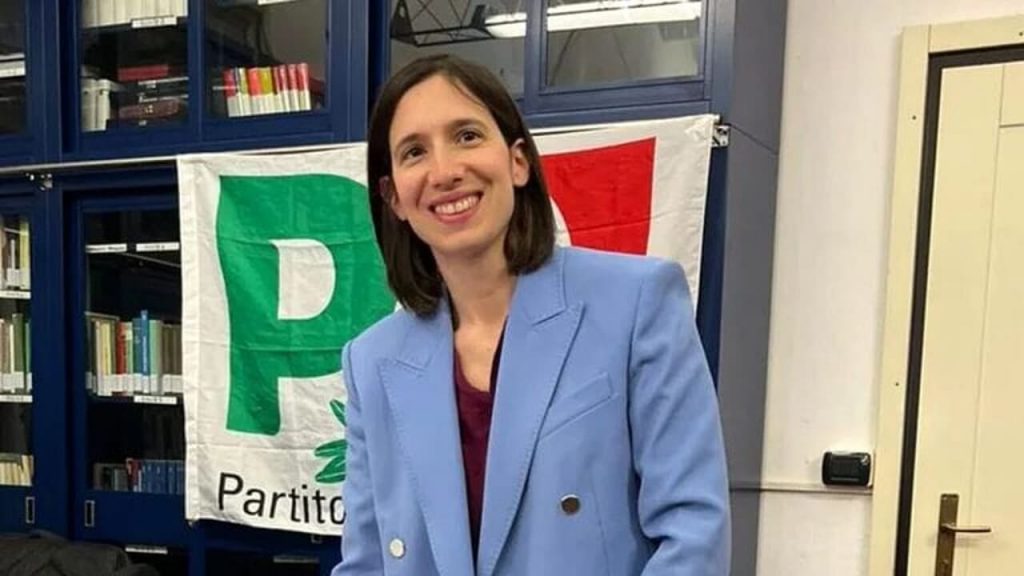
Today, on the eve of the European Parliament elections, Elly Schlein is actively criticizing Meloni’s political course. Especially after her video message to the participants of the congress of the Spanish far-right party “Vox”, which was honored by the attention of Marine Le Pen, Argentine President Javier Milay, the leader of the far-right party “Chega” Andre Ventura, Israel’s Minister of Diaspora and Anti-Semitism Amihai Chikli. The far-right U.S. was represented by two “Trumpists” Mat Schlapp and Roger Severino. “Change in Europe is possible if European conservatives unite. We are the engine of our continent’s revitalization,” Meloni stated forcefully and dwelt on the danger to Europe of a left-liberal course. As many political experts noted, despite the fact that Meloni and Le Pen met virtually, but they are united by a common path to a renewed European Union.
Passions then boiled over in pure Italian fashion. Ellie Schlein did not avoid Giorgi Meloni’s speech, emotionally noting that the Prime Minister, in the company of nationalists, Francists and friends of Trump, is attacking us from Spain, saying that the left is erasing identity. Schlein accused Meloni of being the one to blame for the decline in Italian living standards. “While Meloni is canceling 330 million in rent fund and burying the minimum wage, you can’t get treatment because the government is cutting public health care. Let a clear message reach you: we will not accept the worst government in the world, together we are creating an alternative that starts with improving people’s material conditions, to put not only the next election but also the future of the next generations back at the center of the political agenda,” Italian publication La Repubblica quoted Schlein’s reaction.
On May 23, the RAI television station had scheduled a televised debate between Meloni and Schlein, which was generating a lot of interest in the country. However, the Italian public broadcaster RAI decided to cancel the debate between Prime Minister Giorgia Meloni and the leader of the opposition “Democratic Party” Elli Schlein because representatives of other parties would not participate. This decision was made following a statement by the watchdog AGCOM, which pointed out that impartiality rules were not respected. RAI should have invited representatives of other parties to the debate or obtained the consent of the majority of them. “The Democratic Party of Italy regretted the decision. Their leader said she was ready for a debate with the prime minister “wherever and whenever”.
Elly Schlein’s activity also affects the party’s rating, though not as sharply as the DP would have liked. According to the results of polls conducted by a number of sociological centers: “Demopolis” (publication date: May 8), “EMG” (May 12), “Eumetra” (May 9), “Quorum” (May 6 and 13), “SWG” (May 6 and 13) and “Tecnè” (May 11), the Democratic Party has “gnawed” only 0.2% and is in second place with a rating of 20.6%. The rating of the Brothers of Italy, despite being the lowest since Meloni’s confirmation as Prime Minister – 27.2% – confirms their leadership in the Italian electoral standings. As for the seats in the European Parliament, in such a scenario, the Democratic Party will retain its 15 seats in the political group “Progressive Alliance of Socialists and Democrats”. And the Brothers of Italy, going to the European elections under the leadership of Prime Minister Giorgi Meloni, will replenish the piggy bank of the group “European Conservatives and Reformists” more solidly – by 20 mandates, which will be 10 seats more than in the last elections to the European Parliament in 2019.
German puzzles of the Social Democrats
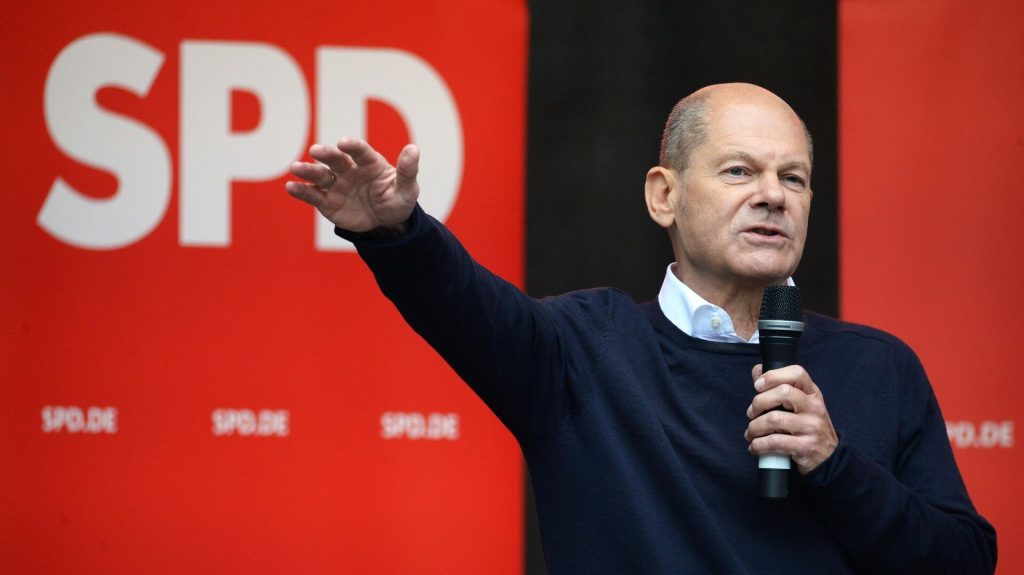
For one of Germany’s oldest parties, the Social Democratic Party (SPD), the 2019 European elections were an absolute disaster and a bitter defeat. For the first time since the end of World War II, the Social Democrats found themselves in third place in the all-German vote with just over 15% of the vote and 16 European mandates. By comparison, in the 2014 European Parliament elections, they scored 27.3% and won 27 seats in the Progressive Alliance of Socialists and Democrats group. On the results of the 2019 elections, SPD leader Andrea Nahles said: “The results are too disappointing.”
The electoral defeat of the party she has led for more than a year could not be prevented. Many in the SPD even felt that Nahles had only accelerated the process. The Social Democrats’ failure in the same day’s Landtag elections in Bremen, a federal state in the north of the country that had been a stronghold of the SPD, made matters worse. The Social Democrats have been in power in Bremen for 73 years, but now the Christian Democrats from the CDU/CSU bloc have managed to overtake them for the first time. The double defeat – in the Bremen Landtag and European Parliament elections – was not without consequences. Andrea Nahles resigned and the party congress in Berlin elected two co-chairmen, Zaskia Esken and Norbert Walter-Borjans.
It is worth noting that the German Social Democratic team approached the Bundestag elections in 2021 in a completely different mood and at a completely different level of readiness. These elections in Germany were called special. First, the FRG is not only the informal leader of the European Union, but also the first economy of the Community. Brussels’ decisions will largely depend on the position of the new government in Berlin. Secondly, the parliamentary elections in Germany resulted not only in the change of the chancellor after 16 years of Merkel’s rule, but also in the change of the so-called grand coalition of CDU/CSU and SPD, which has been at the helm for the last eight years. Since none of the political forces enjoyed the support of even a third of the German population, the most likely scenario, according to experts’ forecasts, would be the creation of a coalition of three parties. As a matter of fact, that’s exactly what happened…
A few days before the election, the leadership of the Social Democrats, who for the past eight years had been content with being the CDU’s junior partner in the ruling coalition, was a complete surprise, and now they were ahead by 4 percentage points. For the first time in 15 years, the party was leading in opinion polls. This was largely to the credit of the chancellor’s candidate, 63-year-old Vice Chancellor and Finance Minister Olaf Scholz.
Scholz’s campaign was built on simple slogans: he promised to build houses to achieve lower housing prices, raise the minimum wage and turn Germany into a major exporter of green electricity. More interesting is the role Scholz chose to play. While his opponents sought to show what new things they could bring to German political life after the “Merkel era,” Scholz actively exploited the image of Merkel’s successor. The media noted: he even often folded his hands “house way” – Angela Merkel’s trademark gesture. At the end of the election, the SPD’s result amounted to 25.7% and was 5.2 percentage points higher than in the 2017 election. With a 1.6 percent lead over the CDU/CSU bloc, the SPD formed a coalition with the Greens and the Free Democrats two months after the election.
“The traffic lights are on,” said Olaf Scholz at a press conference, referring to the name “traffic light coalition”, which it received because of the colors of the three parties. Scholz himself succeeded Angela Merkel as chancellor. The first year of his chancellorship was marked by serious challenges: the energy crisis, Russia’s aggression against Ukraine, and tense relations within the European Union. Scholz also faced harsh criticism from both his political opponents and coalition partners for his lack of decisiveness in supporting Ukraine. The rejection of Russian energy supplies has put the “traffic light” coalition in a vulnerable position regarding election promises on climate policy change. The German government partially sacrificed the green agenda by opening several coal mines. German industry, which has felt gas price fluctuations first, has also been hit hard. Nevertheless, 2022 was ending on a major note for the Social Democrats. In the Saarland elections, they beat the CDU, which had led the government since 1999, by a record 43.5 percent, 14 percentage points more than in the previous election in 2017.
In electoral terms, however, 2023 was a year of bitter defeats and disappointments for the German Social Democrats. The SPD did not approach its 160th anniversary in May 2023 in the best condition. Social issues have traditionally been a core competence of the German Social Democrats. But it was effectively overshadowed by the war in Ukraine and its aftermath. Chancellor Scholz was mainly preoccupied with foreign policy, the SPD interior minister with migration, and the labor minister struggling with a shortage of skilled labor. The Social Democrats were careful not to mention their main election promise – to build 400,000 apartments a year in Germany – due to the strained real estate market and inflation in Berlin. The German and European press, just in time for the SPD’s anniversary, broke into a series of publications with unflattering statements about the Social Democrats.
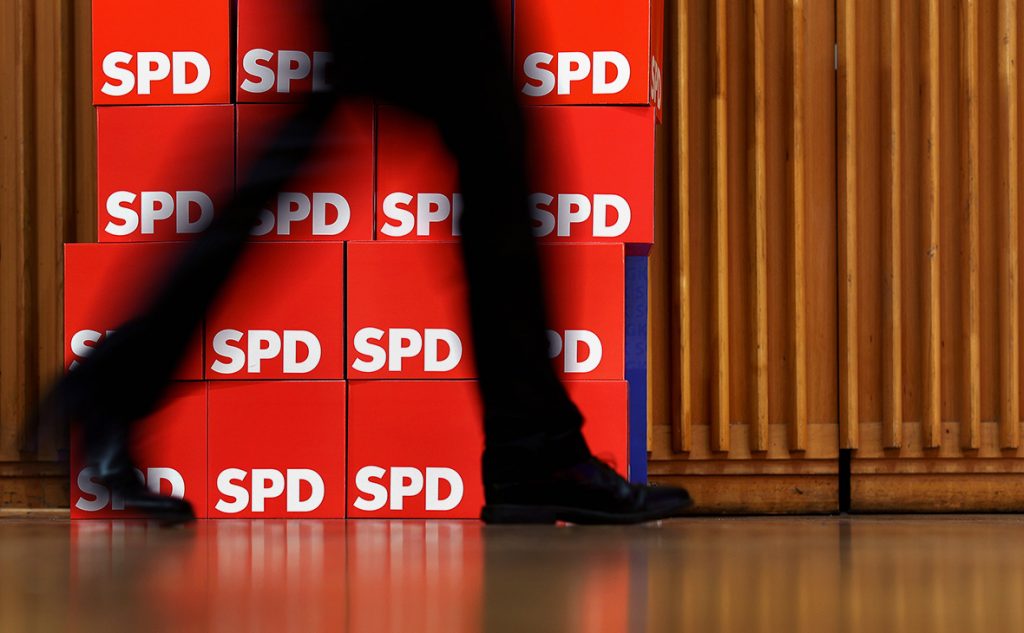
“The SPD has gradually turned into a dull and boring party,” says Der Tagesspiegel and goes on to state: “With the government headed by an SPD chancellor who resembles a notary rather than a political leader, the character of the SPD as a programmatic party is fading and fading”. Today, the social democratic movement is losing its influence across Europe,” Večernji list writes: “The decline of European social democracy is primarily to the advantage of the new left-wing parties that have emerged in a number of European countries, mainly in those that have experienced financial or debt crises. In recent decades, social democratic parties have turned their backs on their traditional themes and their core constituency – the working people – but have failed to find new themes or attract new voters.
The party was clearly going through a systemic crisis, which could not but affect its electoral positions. For example, in Berlin, after 22 years of Social Democratic rule, they were replaced by the CDU. In Saxony and Saxony-Anhalt, the level of support for the party, according to polls, did not even reach double digits. In Bavaria, the SPD, that is, the party whose representative heads the German federal government, did not even gain 10% of the vote – only 8.4%. Its faction in the Bavarian Landtag was the smallest. In Hesse, a federal state where the Social Democrats held the prime minister’s seat for many years after the war and until the end of the last century, the SPD lost even more than in Bavaria and received the worst result in history – 15.1% (minus 4.7%). Especially depressing for the Social Democrats is the fact that they were led in the elections in Hesse by Nancy Feather, the federal minister of the interior, who is widely known throughout Germany. However, it was her failure in the land elections that was particularly expected.
According to most experts, 2024 will be a tough test not only for the “traffic light” coalition in general, but also for the Social Democrats in particular. In Germany, it is an election year. On June 9 there will be elections to the European Parliament, in September – elections to the Landtags in the federal states of Saxony, Thuringia and Brandenburg. Nine of the 16 federal states will hold communal elections.
The new year began with rating turbulence for the SPD. According to the results of a poll conducted by the Insa Institute on January 2-5, the SPD’s rating seemed to have stopped falling and even rose by 1% to 16%. However, the results of the so-called “Sunday poll” conducted by Forsa for RTL and ntv, ten days later, came back to shock: the Social Democrats would receive only 13% of the popular vote. The opposition CDU/CSU bloc was far ahead with 31% (plus one percentage point). The far-right Alternative for Germany remained the second strongest force with an unchanged 22%. It was followed by the Greens with 14%. The results of this poll were the worst for the Social Democrats in three years. Some SPD members even began to leave the party. In these conditions, the party leadership needed new ideas, not only to raise the declining rating and mobilize its voters to the maximum extent possible, but also to “bite” a part of the electoral pie from the Left and the Greens.
Without inventing anything, the SPD followed the tried-and-true path: nothing unites and unites people around a party like a common enemy. In this case, the new “trick of the campaign” was the fight against the extreme right-wing threat represented by the Alternative for Germany party. Olaf Scholz not only supported on his Twitter (X) the many thousands of protests of German citizens against the far-right, which swept across the country in winter, but also took part in one of the demonstrations held in Potsdam. Then SPD co-chairman Lars Klingbeil, elected at the 2021 congress to replace Walter-Borjans, went on the offensive. He called Alternative for Germany leader Alice Weidel a right-wing extremist and held her responsible for her far-right party. In an interview with RND, Klinbeil called on more Germans to speak out against the far-right AdG: “All sensible people who have been silent until now must now also raise their voices. The image of our country is at stake,” he pointed out. Further, the topic of the “far-right threat” did not fall off the “agenda” of the chancellor and the SPD at all state and party events. The final “touch” in the campaign against the far-right was the attack on Saxon MEP Matthias Eecke in Dresden.
At the initiative of the SPD and the Party of European Socialists, a Democratic Congress was held in Berlin, where Olaf Scholz called for united action against the right-wing. As Euronews notes, “Chancellor Olaf Scholz’s German Social Democratic Party’s approval rating has fallen to a historic low after years of economic decline in the country. Now the center-left is struggling to regain the support of German citizens by appealing to the rising violence of the far right.”
In their desire to make their program socially attractive, the Social Democrats do not shy away from outright populist initiatives. In an interview with Stern magazine, German Chancellor Olaf Scholz said: “I am unequivocally in favor of first raising the minimum wage to 14 euros and then to 15 euros. German authorities already have a plan to raise the minimum wage next year, from the current 12.41 to 12.82 euros. But this, according to Scholz, is not enough. The German chancellor is not the first to talk about raising the minimum wage. The chancellor’s colleagues from the left wing of the SPD – for example, from the party’s co-chairmen Lars Klingbeil and Zaskia Esken – have repeatedly made similar calls. But they did not name specific amounts. As for the environmental agenda, it largely coincides with the Greens, as does the approach to migration policy and the intention of large-scale investments in the social sphere. But in the sphere of foreign policy, the programs of the parties differ. “Peace in Europe cannot be against Russia, but only together with it,” the Social Democrats believe. The SPD is trying to position itself as the “party of peace in Germany,” which calls for a “new European Eastern policy” – despite Russia’s gross violation of international law.
“The statement made by Rolf Mützenich, chairman of the SPD faction in the Bundestag, in mid-March about the possibility of “freezing” the war in Ukraine, added fuel to the fire. And although his coalition partners and some of his fellow party members, including the highest-rated Social Democrat, Defense Minister Boris Pistorius, distanced themselves from him, the debate on this issue has not finally subsided. A letter from respected historians and SPD members to the party leadership, which sharply criticized the statements of the chancellor and the SPD party and factional leadership regarding arms deliveries to Ukraine, caused a great resonance.
The authors of the letter believe that “freezing the war” in Ukraine would actually mean its completion “in favor of the aggressor”. “The policy under the slogan of the ‘peace party’, which is carried out by individual party members, operates with short-sighted terminology, ignores not only the experience of the Minsk agreements, but also the events in the Russian-occupied territories and, not least, Russia’s threats to attack other European countries,” the letter reads. The message of the German historians caused a great resonance among German Social Democrats, and the SPD leadership, represented by Lars Klingbeil, invited the historians to its party office.
Nevertheless, it should be noted that the electoral strategy chosen by the Social Democrats has begun to bear fruit. According to the results of the latest Forsa Institute poll for RTL/ntv, the Social Democratic Party of Germany for the first time since June 2023 has surpassed the Alternative for Germany (AdG) in the poll. The fresh results show that the AdG’s rating remains unchanged at 16%, while the SPD’s result improved by one percentage point from the previous week. So, in this case, the German Social Democrats will retain their representation in the group “Progressive Alliance of Socialists and Democrats” at the level of 16 seats in the European Parliament elections.
Catch up and overtake
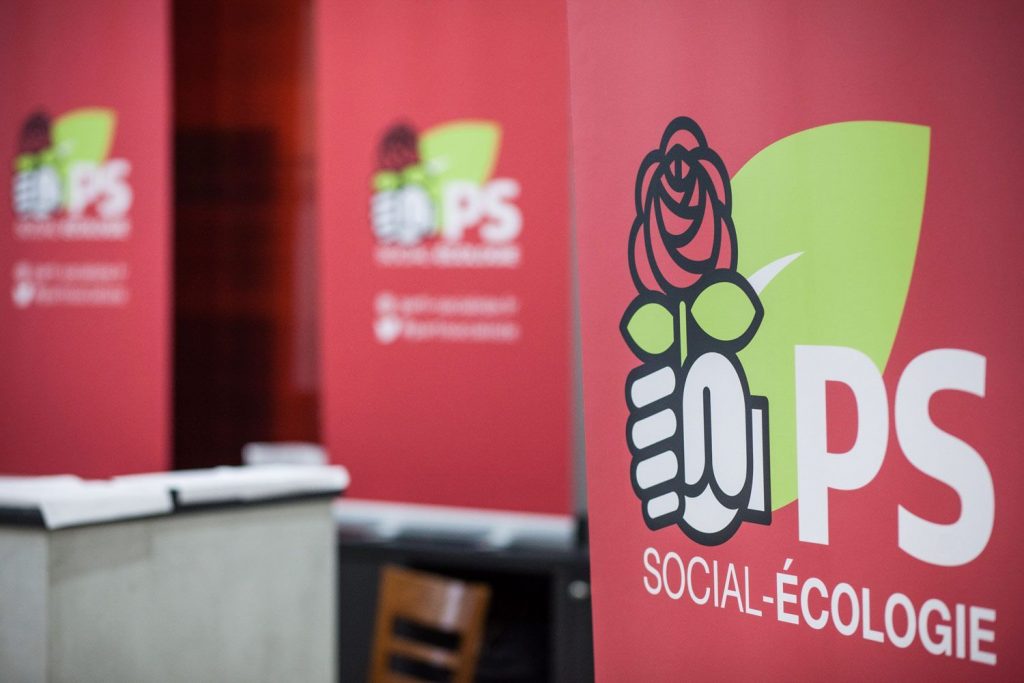
After the main intrigue in the upcoming elections to the European Parliament in France – the fierce confrontation between Marie Le Pen’s National Rally party and the association of parties “Together!” led by President Emmanuel Macron’s Renaissance party – disappeared, a new plot has spun in France. Le Pen’s party led by Jordaan Bardella, which today has 31% of electoral support according to various polls, has literally knocked out the presidential political force led by Valerie Ayer, which today has only 16% of support. The catastrophic decline in the rating of the pro-presidential “Renaissance” gave rise to the following intrigue, which is closely watched in France: will the long-forgotten “Socialist Party”, like a fairy-tale bird Phoenix rising from the ashes, not only catch up with Macron’s party, but also overtake it at the end of the European parliamentary elections in 2024? This ambitious task is set today by the first number of the list of “Socialists” – the head of the movement “Public Place” – Raphael Glucksmann, especially since “Renaissance” and the French Socialists are separated by only two percentage points.
It is worth noting that today’s rise of the “Socialists” – was perhaps the main sensation of these elections. Since 2017, France’s Socialist Party has held a confident position as a political outsider. In the presidential and parliamentary elections of 2017, Emmanuel Macron and his party “Forward, Republic!” literally “destroyed” the Socialists, taking away from them, along with Jean-Luc Melanchon and his “Unconquered France”, a significant part of the electorate. Thus, in the presidential elections, the Socialist nominee Benoît Amon won 6.34% in the first round, and in the second round he called to vote for Macron. In the parliamentary elections, held two months after the presidential elections, the “Socialists” were led into “battle” by the party leader Jean-Christophe Cambadelis, and again the party was expected a grandiose fiasco. Having gained 5.20% and won 30 mandates, the Socialists lost 250 mandates compared to the 2012 elections and decreased their electoral support by 43.33%! After the failed parliamentary elections of 2017, the party expectedly underwent personnel changes.
In April 2018, Olivier Faure won the party elections and became the first secretary of the French Socialist Party. Faure’s immediate goal was to prepare for the 2019 European Parliament elections. To Faure’s credit, he took an unconventional approach to the choice of the first number on the list, choosing essayist, activist, leader of the left-green movement “Public Space” Raphael Glucksmann for this role. Faure’s decision displeased a section of the Socialists, led by the former agriculture minister in Jean-Marc Ayrault’s government, Stéphane Le Foll. In protest against Faure’s decision, he and a number of other prominent Socialists left the party office, saying that the list of French Socialists cannot be headed by an unknown person. By the way, Glucksman’s name was well known in Ukraine, though not in a political context. He “became famous” as a “hero-lover” by cheating on his wife, the head of the National Police of Ukraine, Eka Zguladze. Upset and dumbfounded by the adultery, Zguladze left her position and returned to her homeland in Georgia.
And in France, for the first time since 1979, the Party of Socialists went to the elections not under its own flag. Le Foll’s departure strengthened the position of Olivier Faure, who realized that a failure in the elections to the European Parliament could be fatal for his party. The joint list of the Socialists and the Public Space movement was drawn up on a parity basis. Glucksmann’s attempt to lead the left-wing list by calling other left-wing parties to join it failed. The leader of the Greens, Yannick Jadot, and the founder of Generation.s movement, Benoit Amon, rejected Glucksmann’s outstretched hand. As a result of the elections, Glucksmann and the party list of the “Party of Socialists” and “Public Space” gained 6.19%, and won 5 seats in the European Parliament.
For the new elections for the European Parliament in 2024, Olivier Faure did not “reinvent the wheel” and once again invited Raphael Glucksmann, an MEP from the group “Progressive Alliance of Socialists and Democrats”, to the role of number one on the Socialist list. Today he differs from his 2019 self. First, because the Socialists, in his view, are now in opposition to the Communists and “Unconquered France” because of significant differences in positions on the future of the European Union and Ukraine. However, this does not prevent him from “taking a bite” out of their electorate, emphasizing that it is the Socialists who are the real leftists, and Glucksmann is their leader.

The second direction is the fight for Macron’s disillusioned electorate, which he picks up by mercilessly criticizing the “macronists”, for example, for the fact that they, lobbying the interests of large farmers and agro-corporations, are essentially destroying small and medium-sized farming. He beats Macron with his own “weapons”, presenting himself, more than the French president, as a supporter of European defense. Glucksmann is not shy of playing the social “card” either. During his visit to an amino acid plant in Amiens, which has become a symbol of the European Union’s mistakes in economic and “green” policy (primarily because it was caught between European rules that do not allow the company to buy raw materials at a good price and Chinese “social dumping”).
Criticizing China is another of Raphael Glucksmann’s specialties. At the factory where he spoke, slogans summarizing the distress of the company’s employees were already prepared on white sheets: “No to Chinese dumping!”, “Europe supports, China is killing us!”. Naturally all of this hits Macron, who recently showed French embrace to China and its leader Xi Jinping. Among the key points of his election program is support for Ukraine. Among his proposed measures is the requisition of frozen Russian state assets worth 206 billion euros, which he proposes to use to help Ukraine’s defenders, as well as the creation of a 100 billion euro fund “to invest in Europe’s defense industry.”
It must be said that for a long time, the “Macronists” did not take Glucksmann seriously. Their main task was to narrow the electoral gap with Jordaan Bardela, which, according to Macron, will be smaller and smaller by the time of the “C”. As the French edition of Le Monde notes, during a dinner to celebrate the awarding of the Legion of Honor to lawyer Jean-Michel Darrois, Macron was asked what he thought of Glucksmann, who is running an excellent campaign. The French president replied that Glucksmann lacked managerial experience, while knowing that the electoral strategy for the Socialist was simple: ‘We ignore him’. However, the closer election day gets, the more energetic Glucksmann is coming on the “heels” of Valérie Ayer, reducing the Socialists’ gap, which is now only two percentage points.
According to the latest opinion polls, the Socialist list now has 13%. The “Macronists,” on the spur of the moment, have thrown in a candidate for the European Parliament from the presidential majority, former journalist Bernard Guetta, to fight Glucksmann, who is supposed to stop the social-democratic electorate from fleeing from Macron. However, this seems to be a belated move. It will be very difficult to stop Glucksmann and in the piggy bank of the “Progressive Alliance of Socialists and Democrats” at the end of the elections he could bring 12 parliamentary mandates, seven more than there were in 2019. The risky electoral experiments of the leader of the French Socialists Olivier Faure are fully justified and open good prospects for the party in 2027.
The Romanian Social Democrats will maintain their strong positions in the EP political group “Progressive Alliance of Socialists and Democrats” and the Romanian Social Democrats, who are going to the upcoming European elections in an unexpected alliance with the “National Liberal Party”, a member of the European People’s Party group. Today, this alliance is a government coalition formed to break the political deadlock following the 2020 parliamentary elections, when it was impossible to form a one-party government. At the time, the Romanian press reacted vividly to the formation of a coalition between the two sworn enemies, accusing them of being driven by one desire – “…to establish their own rules, distribute resources among themselves and live happily off the budget. Nepotism, not solidarity, is what will ensure its survival.
It is worth noting that the forecasts of the Romanian press turned out to be prophetic in many respects. Given that Romania has a big electoral marathon in 2024, with four key election campaigns, the ruling coalition decided to combine European elections with local ones. Romanian Prime Minister and PSD leader Marcel Ciolacu said, “We have decided, in addition to the merger and electoral alliance between the Social Democratic Party and the National Liberal Party on the European Parliament list, to hold presidential elections in September and local elections on the same day as the European Parliament elections.”
Opposition Romanian parties disagreed with the merger of the elections and considered the decision undemocratic and unconstitutional, stating that they would seek a court review. However, nothing changed and the election campaign for the European Parliament and local elections officially started on May 10. It is important to note that both the Social Democrats and the National Liberals, while publicly declaring the “purity” of the electoral process, are not shy to use their administrative advantages to the fullest. Thus, Prime Minister Ciolacu promises to build a modern county hospital in Constanta if the residents support the SDP candidate for the position of the head of the county council. And there are more than enough examples of handing out “tasty candies” with administrative flavor.
Naturally, this also affects the electoral preferences of citizens. Thus, according to a Politico poll, the Social Democrats with 32% support are 12 percentage points ahead of their coalition partners from the National Liberal Party. The joint rating of the parties, according to Euroactiv polls, is 46% with a tendency to increase. There is no doubt that the Romanian Social Democrats are likely to increase their representation to 12-13 mandates and maintain their strong position in the “Progressive Alliance of Socialists and Democrats” group.

The position of the European Social Democrats is also stronger than ever in the Nordic countries. In Sweden, Finland and Denmark, they are in the lead in their national ratings. According to various opinion polls, the Social Democratic Party of Sweden has a rating of 30-34% and is 12-14% ahead of its closest pursuers from the extreme right-wing party “Sweden Democrats”. This will increase their representation in the European Social Democrats group by 7 mandates, which will be two more than in 2019.
In Finland, the Social Democratic Party “Suomi” is in second place with almost 20% and less than 2% behind the center-right “Coalition Party”. This result allows them to count on 3 mandates in the European Parliament, which will be one more than in the last elections. In Denmark, the Social Democrats are also in the lead of the national rating. Today 20% of Danes are ready to vote for them, which gives them the opportunity to retain their three mandates in the group “Progressive Alliance of Socialists and Democrats”.
In all likelihood, the Austrian Social Democratic Party will retain its current representation of 4 mandates. It is building its campaign for the elections to the European Parliament on the traditional messages that have become traditional for the Social Democrats: “Europe first, not made in China”, the priority of “European products” in tenders over other suppliers, huge investments in European production facilities, the “re-industrialization” of Europe for a speedy “green transition”. But in this case, too, there are nuances: “The Social Democratic Party of Austria” does not envision a European army and proposes to rely on neutrality. At the same time, the party criticizes certain Austrian companies doing business in Russia.
On migration policy, the party favors reducing the number of asylum applications in Austria, while the reception and processing of such applications should be outside the EU. And of course, the Social Democrats are in favor of boycotting coalitions with the extreme right both in the European Parliament and in Austria itself. The first number of the European list of Austrian Social Democrats Andreas Schieder once again criticizes Ursula von der Leyen for her flirtation with the far right, saying that there are already such cases in Austria and named Salzburg and Lower Austria, where the “People’s Party”, which is a member of the EP in the group of the European People’s Party on the results of local elections concluded such an alliance with the “Austrian Freedom Party”.
The latest opinion polls conducted in Austria show the Social Democrats’ rating at 22-23%, with a 7% lag behind the leading extreme right-wing Austrian Freedom Party. Also, the Social Democrats from Belgium and Croatia have every chance to retain their previous representation in the European Parliament.
Socialist outsiders
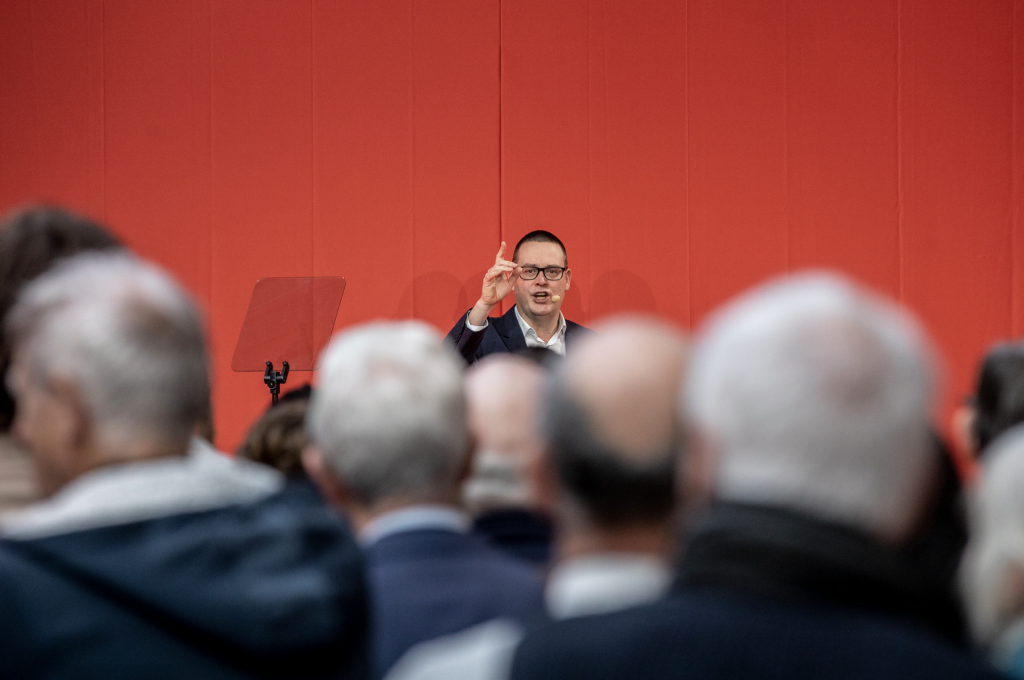
In the Netherlands, however, the Social Democrats are likely to lose three seats in this European Parliament election. In 2019, the Labor Party, led by European Commission Vice President Frans Timmermans, unexpectedly won with 18.4% and 6 seats in the European Parliament. On the eve of parliamentary elections in 2023, the “Labor Party” and the “Green Left” formed a coalition, which at the end of the elections took second place with 15.75%, losing to the far-right “Freedom Party” of Geert Wilders. However, in some regions in North Holland, in Utrecht and among voters abroad, the joint list was – first.
Following the election results, the Social Democrat Timmermans called it impossible for the alliance to enter into a coalition with Wilders. By the way, recently, despite pessimistic predictions about the ability of the extreme right to form a coalition, the action took place. The coalition with Widders’ Freedom Party included incumbent Prime Minister Mark Rutte’s People’s Party for Freedom and Democracy (VVD), the New Social Contract (NSC) and the Farmer-Citizens’ Movement (FSM). The formation of the coalition cabinet was made possible by Wilders’ refusal to run for prime minister of the Netherlands and his condition to write into the coalition agreement the Freedom Party’s main point – tougher migration policy.
Today’s electoral dynamics give the Labor Party and Green/Left alliance about 16% of voter support and a 6% gap to Wilders’ Freedom Party. At best, the alliance can count on five mandates to be shared between the Labor Party and the Greens/Left, which belong to different political groups in the European Parliament.
The Bulgarian Socialist Party is also at risk of losing three seats in the upcoming EP elections. Its current rating of 10% allows it to count on two seats.
The position of the Social Democrats in other EU countries will also weaken considerably. In Malta, Cyprus, Poland, Estonia and a number of other countries, they are losing one seat each in the EP. Showing a principledness that no one expected from the European Social Democrats, especially on the eve of the European Parliament elections, they suspended the membership in their political group in the EP of Slovak Prime Minister Robert Fitzo’s party “Course-Social Democracy” (“Smer-SD”), accusing them of “right-wing” bias and violation of the EU’s basic values. It is hard to guess whether the leadership of the Social Democratic group will “bite their elbows” at the election results or not, but when every mandate counts for the future “grand coalition”, four mandates of Smer-SD would be a good thing for them.
A week before the start of the elections to the European Parliament, according to a number of sociological studies, the group “Progressive Alliance of Socialists and Democrats” (S&D) has every chance to retain the second place by the number of mandates in the new composition of the European Parliament. With a preliminary figure of 143 mandates, S&D risks reducing its presence by only two deputies, but these forecasts are preliminary and it is possible that very soon we will witness unexpected “surprises” that could significantly affect the outcome of the vote. At the same time, the main problem for the Social Democrats in the new parliament may become not the number of seats, but the presence of their representatives in the leadership of the main European institutions. It is this factor that will determine the future prospects of the Social Democratic camp and its electorate.

